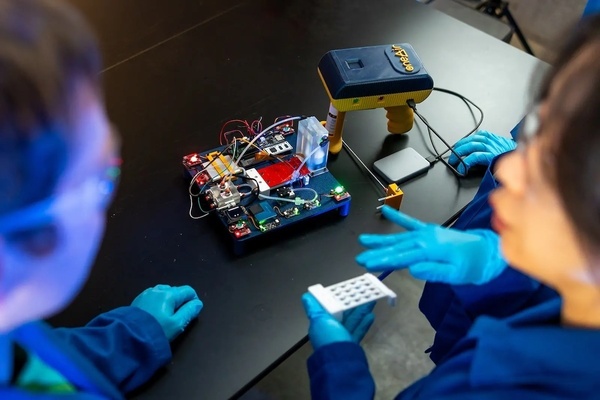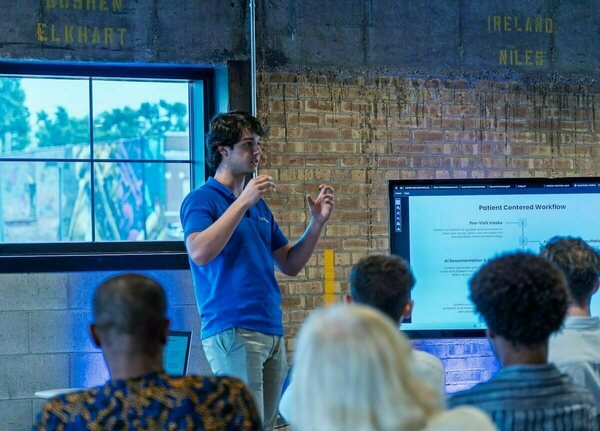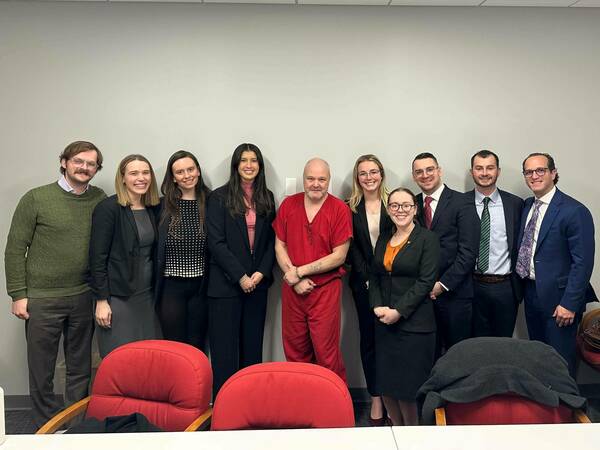Social media platforms aren’t doing enough to stop harmful AI bots, research finds
While artificial intelligence (AI) bots can serve a legitimate purpose on social media — such as marketing or customer service — some are designed to manipulate public discussion, incite hate speech, spread misinformation or enact fraud and scams. To combat potentially harmful bot activity, some platforms have published policies on using bots and created technical mechanisms to enforce those policies.
But are those policies and mechanisms enough to keep social media users safe?

New research from the University of Notre Dame analyzed the AI bot policies and mechanisms of eight social media platforms: LinkedIn, Mastodon, Reddit, TikTok, X (formerly known as Twitter) and Meta platforms Facebook, Instagram and Threads. Then researchers attempted to launch bots to test bot policy enforcement processes.
The researchers successfully published a benign “test” post from a bot on every platform.
“As computer scientists, we know how these bots are created, how they get plugged in and how malicious they can be, but we hoped the social media platforms would block or shut the bots down and it wouldn’t really be a problem,” said Paul Brenner, a faculty member and director in the Center for Research Computing at Notre Dame and senior author of the study. “So we took a look at what the platforms, often vaguely, state they do and then tested to see if they actually enforce their policies.”
The researchers found that the Meta platforms were the most difficult to launch bots on — it took multiple attempts to bypass their policy enforcement mechanisms. Although the researchers racked up three suspensions in the process, they were successful in launching a bot and posting a “test” post on their fourth attempt.
The only other platform that presented a modest challenge was TikTok, due to the platform’s frequent use of CAPTCHAs. But three platforms provided no challenge at all.
“Reddit, Mastodon and X were trivial,” Brenner said. “Despite what their policy says or the technical bot mechanisms they have, it was very easy to get a bot up and working on X. They aren’t effectively enforcing their policies.”

As of the study’s publishing date, all test bot accounts and posts were still live. Brenner shared that interns, who had only a high school-level education and minimal training, were able to launch the test bots using technology that is readily available to the public, highlighting how easy it is to launch bots online.
Overall, the researchers concluded that none of the eight social media platforms tested are providing sufficient protection and monitoring to keep users safe from malicious bot activity. Brenner argued that laws, economic incentive structures, user education and technological advances are needed to protect the public from malicious bots.
“There needs to be U.S. legislation requiring platforms to identify human versus bot accounts because we know people can’t differentiate the two by themselves,” Brenner said. “The economics right now are skewed against this as the number of accounts on each platform are a basis of marketing revenue. This needs to be in front of policymakers.”
To create their bots, researchers used Selenium, which is a suite of tools for automating web browsers, and OpenAI’s GPT-4o and DALL-E 3. The research, published as a pre-print on ArXiv, was led by Kristina Radivojevic, a doctoral student at Notre Dame, and supported by CRC student interns Catrell Conley, Cormac Kennedy and Christopher McAleer.
Contact: Brandi Wampler, associate director of media relations, 574-631-2632, brandiwampler@nd.edu
Originally published by at news.nd.edu on October 14, 2024.
Latest Research
- Fighting for Better Virus DetectionAn electronic nose developed by Notre Dame researchers is helping sniff out bird flu biomarkers for faster detection and fewer sick birds. Read the story
- Notre Dame’s seventh edition of Race to Revenue culminates in Demo Day, a celebration of student and alumni entrepreneurship…
- Managing director brings interdisciplinary background to Bioengineering & Life Sciences InitiativeThis story is part of a series of features highlighting the managing directors of the University's strategic initiatives. The managing directors are key (senior) staff members who work directly with the…
- Monsoon mechanics: civil engineers look for answers in the Bay of BengalOff the southwestern coast of India, a pool of unusually warm water forms, reaching 100 feet below the surface. Soon after, the air above begins to churn, triggering the summer monsoon season with its life-giving yet sometimes catastrophic rains. To better understand the link between the formation of the warm pool and the monsoon’s onset, five members of the University of Notre Dame’s Environmental Fluid Mechanics Laboratory set sail into the Bay of Bengal aboard the Thomas G. Thompson, a 274-foot vessel for oceanographic research.
- Exoneration Justice Clinic Victory: Jason Hubbell’s 1999 Murder Conviction Is VacatedThis past Friday, September 12, Bartholomew County Circuit Court Judge Kelly S. Benjamin entered an order vacating Exoneration Justice Clinic (EJC) client Jason Hubbell’s 1999 convictions for murder and criminal confinement based on the State of Indiana’s withholding of material exculpatory evidence implicating another man in the murder.
- Notre Dame to host summit on AI, faith and human flourishing, introducing new DELTA frameworkThe Institute for Ethics and the Common Good and the Notre Dame Ethics Initiative will host the Notre Dame Summit on AI, Faith and Human Flourishing on the University’s campus from Monday, Sept. 22 through Thursday, Sept. 25. This event will draw together a dynamic, ecumenical group of educators, faith leaders, technologists, journalists, policymakers and young people who believe in the enduring relevance of Christian ethical thought in a world of powerful AI.













